If you know me at all, then you know I am a book addict. I have been a book addict since I was old enough to pretend I could read. Okay, junkie is probably a better term for it. I can, and usually do, chug down a book a week.
Considering that we are still very close to the beginning of a new year, I thought I might give a list of some of the books that I read in 2011. These are the books that had an impact on my spiritual life in some way, shape, or form. Again, these are books only read in 2011. I have not included books that were re-read (a fav pastime).
I will be providing linkage to where you can get these books if you’re interested. Just click on the cover image or go over to the carousal on the sidebar (many of them are on there). All monies generated from the carousal go toward the running costs of Ad Astra.
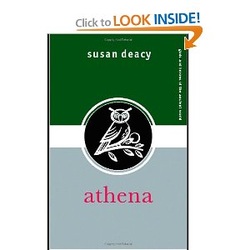
What is not to love about this book!? “Athena,” is the first in a series called, “Gods and Heros of the Ancient World.” Dr. Deacy writes in style that is easy to get drawn into, while at the same covering a huge amount of information. She has obviously done her research. This book is on my all time fav list for one very simple reason, Dr. Deacy covers Athena in a way I have never seen in any other book. Deacy takes a look at Athena not only as an individual, but also as part of a family of divinities. Athena is shown in how she interacts with and influences her fellow Olympians. A prime example of this can be seen in how it was Poseidon who created horses, but it is Athena who made reins and chariots. Athena took Poseidon's gift of the horse and turned into something useful for humankind. Seeing Athena’s relationships as truly a part of a family, and not some lone wolf in a group, was a delightful new angle for a book like this to cover. Deacy also includes hypotheses about why Athena survived the take over of Christianity and continues to be a symbol in modern society.
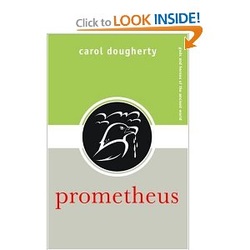
Number Two:
This was the second book in the Gods and Heros series. What can I say? I have yet to read a bad book from this series. What stood out the most from this very informative book was not only a beautiful portrait of a God I knew very little about, but also how He influenced so many modern movies and stories. Dr. Dougherty even covers how the image of Prometheus as a fighter against a tyrannical dictator influenced the industrial as well as the Russian revolutions. The way Dr. Dougherty shows the impact that Prometheus has had on modern story telling, makes me wonder how I cold not have seen it before. this book made me fall in love with the fire bringer who tricked Zeus into allowing human’s to get the best part of the offerings.
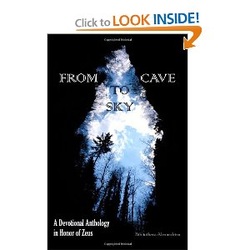
Number Three:
I must admit that Zeus is one of those Gods that used to raise my hackles. He seemed too close to the Christian view of a father God who had little to no concern for the female of the species. For a very long time I avoided Zeus, and he seemed to have finally of had enough of it. He dropped two books in my lap, and this was the first to land. This is a compilation written by many authors, and includes poems of devotion, stories, and scholarly articles. I finished wanting to get better aquatinted with this God whom I had so completely misunderstood. The most powerful piece I found in this book was a fictional story written from the perspective of an Asatru Heathen listening to a woman speak of Zeus by a fire. This story dealt rather convincingly with the major reason I was a bit cold to the Father of Olympus, and that would be his history of womanizing and raping. I don’t want to spoil the story for anyone, so please, go read it!
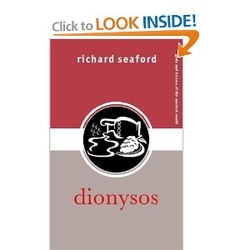
Number Four:Confession time. This is the only God who has ever, and still does to a certain extent, scare the living shit out of me. Dionysos is a God who represents everything that scares me. Loss of control being a major part of that. I do appreciate his ability to make all equal, but does it count if it is equality in madness? I bought this book because I had loved the series so much so far, and I wanted to face my fears. Much like Zeus, Dionysus had been jumping up and down in my face to pay attention to him. This book has helped me to better understand this rather complex God, and provides an amazing section on the influences his cult had on Christians when they were first starting out. Well written and a real gem that belongs in everyone’s library. I will admit though, Dionysos still makes me skittish, but I think this now comes from the fact that I know what he wants from me, and I’m just not quite ready yet. Thankfully he has been patient so far. I think he knows the traumas I have had at male hands, and is going slow with me.
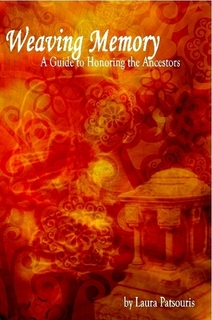
Number Five:This book was recommended to me by Galina Krasskova (who also wrote the introduction to the book), and I will forever be thankful to her for doing this. As I have said elsewhere in this blog, my family is a tad weird about relationships, and maintaining them. This book gave me practical ideas on how to start my journey of getting to know and work with this kindred. The book also offers great advice on what to do with ancestors who are not so nice. Her thoughts on how mothers are concerned with the continuation of the line, and fathers concerned with place and physical issues seemed spot on to me. Ms. Patsouris knows her subject extremely well and gives a history of her own work as examples for various sections. She also doesn’t shy away from some darker subjects, and this made for some rather interesting meditations on the nature of revenge on rapists and others of that ilk, for me. This is one that I would love to see ADF include in the required reading for the DP, if not for any other reason than it gives great ways to interact with one of the kindreds in concise and clear ways. I think everyone could benefit from such advice.

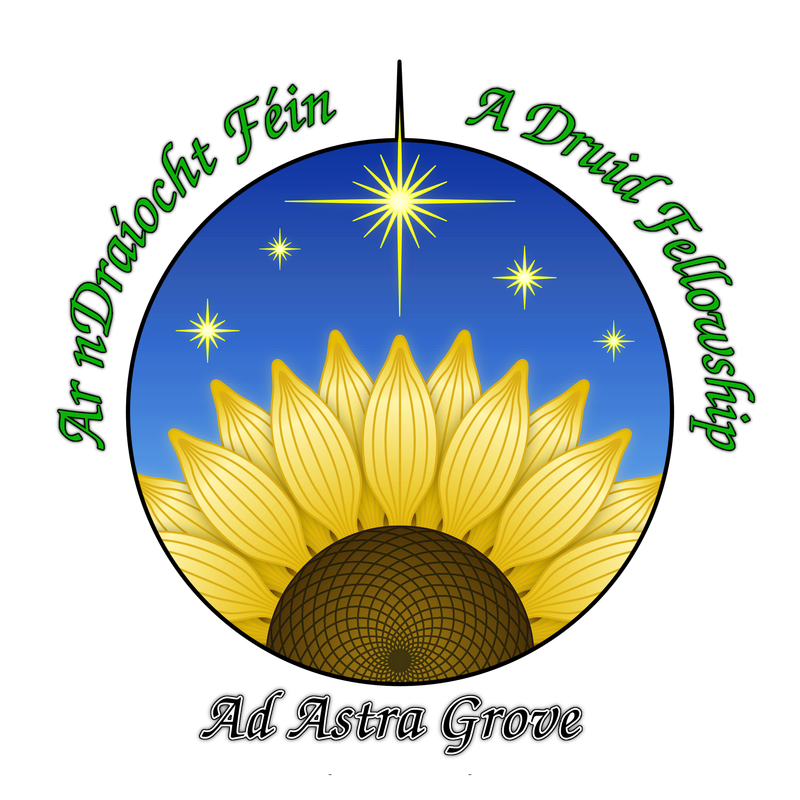
 RSS Feed
RSS Feed
